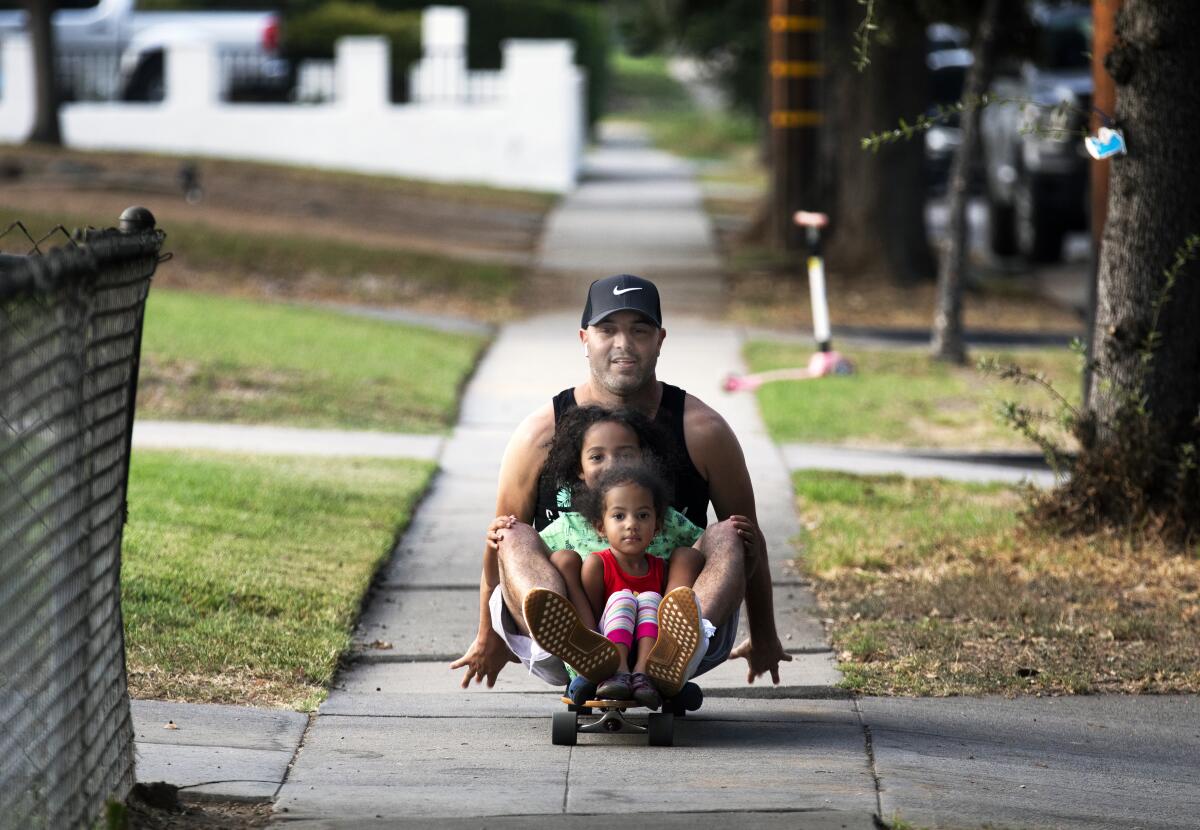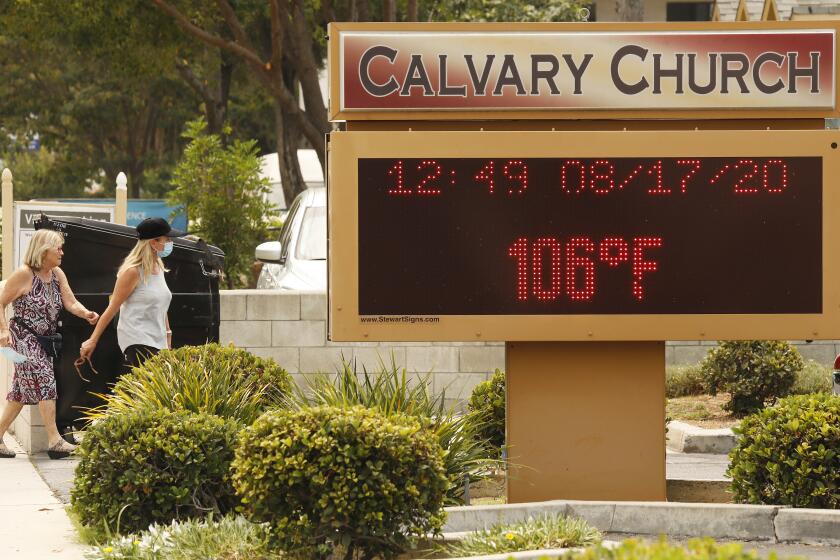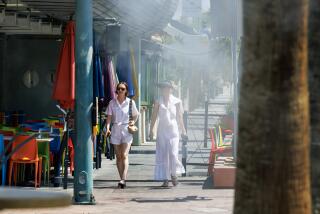Fall heat wave breaks records, prompts statewide flex alert to conserve energy

- Share via
More dangerous conditions are in store Thursday for Southern California, as a possible electricity shortage arrives amid a record-breaking heat wave.
“Max temps today will be 15 to 25 degrees above normal with a few Central Coast locations a whopping 30 degrees above normal!” the National Weather Service warned in an advisory.
For the record:
2:26 p.m. Oct. 1, 2020An earlier version of this article said that 87,500 Pacific Gas & Electric customers were left without electricity following a preemptive shutdown of some equipment earlier this week. That number was estimated at 65,000.
Temperatures in Los Angeles County could reach as high as 105 degrees in inland areas and 95 at the coast.

At least six daily heat records were broken in Central and Southern California on Wednesday, including the hottest-ever Sept. 30 at Los Angeles International Airport (92 degrees) and Long Beach Airport (105).
A 98-degree reading at UCLA tied the record for the date set in 1999.
Temperatures soared across the Southland on Wednesday, the hottest day of a weeklong heat wave.
David Sweet, a meteorologist with the National Weather Service in Oxnard, said the system behind these high temperatures is massive.
“The weather feature that is driving this heat wave is covering the entire West Coast,” he said. “It’s a very, very large area of high pressure. It’s basically a dome of very hot air sitting over the state of California and the rest of the West Coast.”
The extreme conditions have pushed the California Independent Systems Operator, the agency that runs much of the state’s electrical grid, to issue a statewide flex alert calling for residents to conserve electricity between 3 and 10 p.m.
“The power grid operator is predicting an increase in electricity demand, primarily from air conditioning use,” the ISO said. “Reduced capacity, along with fire activity and heat, has led to a potential shortage of energy supply.”
Consumers are urged to set air conditioning thermostats to 78 degrees, defer the use of major appliances, turn off unnecessary lights, unplug unused electrical devices, close blinds and drapes, use fans when possible and limit time the refrigerator door is open.
The flex alert comes on the heels of Sunday and Monday’s power outage in Northern California, where about 65,000 Pacific Gas & Electric customers were left without electricity following a preemptive shutdown of some equipment in response to blazing wildfires and red flag warnings.
PG&E spokesman Jeff Smith said no additional public safety power shutoffs are in the forecast, but noted that the weather is dynamic and that officials are continuing to monitor the situation closely.
Here are some ideas for reducing power usage and cooling down while California’s flex alert is in effect.
“We encourage all of our customers to conserve as much energy as possible given the circumstances of the flex alert,” he said.
Officials said that heat-related illnesses are a possibility and that people should avoid spending time outdoors. For those without air conditioning or in need relief, a number of emergency cooling centers will be open across Los Angeles County.
The dangerous weather conditions arrive amid a devastating wildfire season that is tormenting much of California.
The state’s high temperatures, combined with very dry conditions marked by single-digit humidity levels, will continue to create an elevated fire danger across the area. The weather service has issued both a heat advisory and a critical fire danger warning through Friday, citing the potential for large smoke plumes and rapid fire spread.
As a result, seven national forests in the state will remain closed for at least another week, the U.S. Forest Service said, in an effort to continue to “prevent any new fires on the landscape.”
Closures include the Angeles National Forest, where the Bobcat fire has seared through more than 114,000 acres since igniting Sept. 6. Containment of that blaze is estimated for Oct. 30.
The Sequoia National Forest, Sierra National Forest, Cleveland National Forest, San Bernardino National Forest, Los Padres National Forest and Inyo National Forest also will be closed through next week.
There is some relief from the heat on the horizon, though it’s far from a shift to fall weather, Sweet said. “A little bit of a cool down” is expected Friday and through the weekend, he said, noting that temperatures early next week “may only be about five or 10 degrees above normal.”
More to Read
Sign up for Essential California
The most important California stories and recommendations in your inbox every morning.
You may occasionally receive promotional content from the Los Angeles Times.













